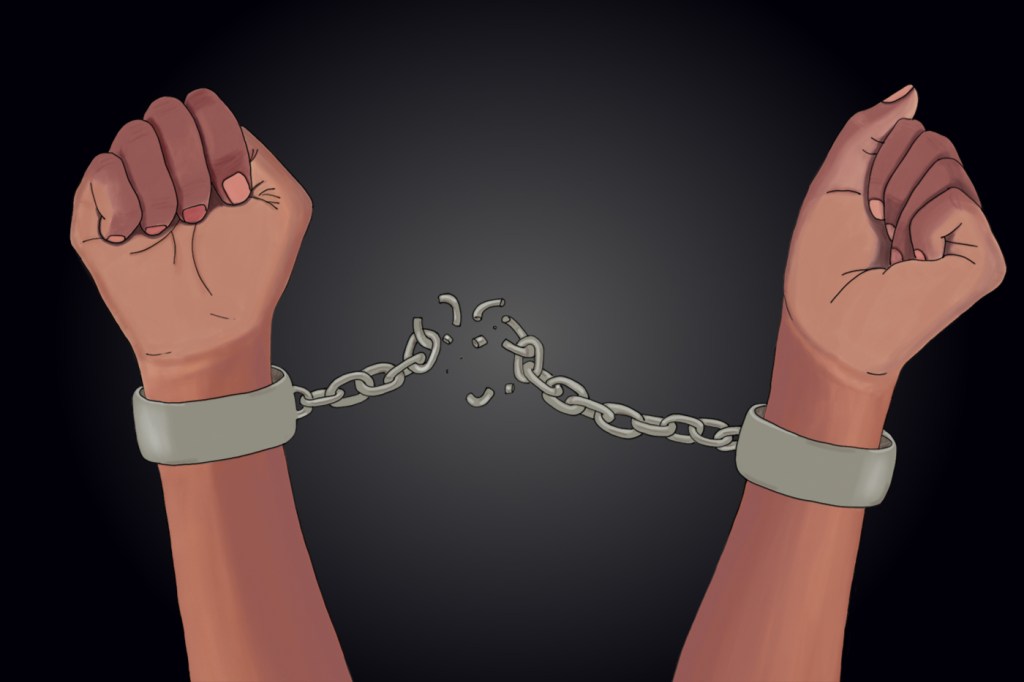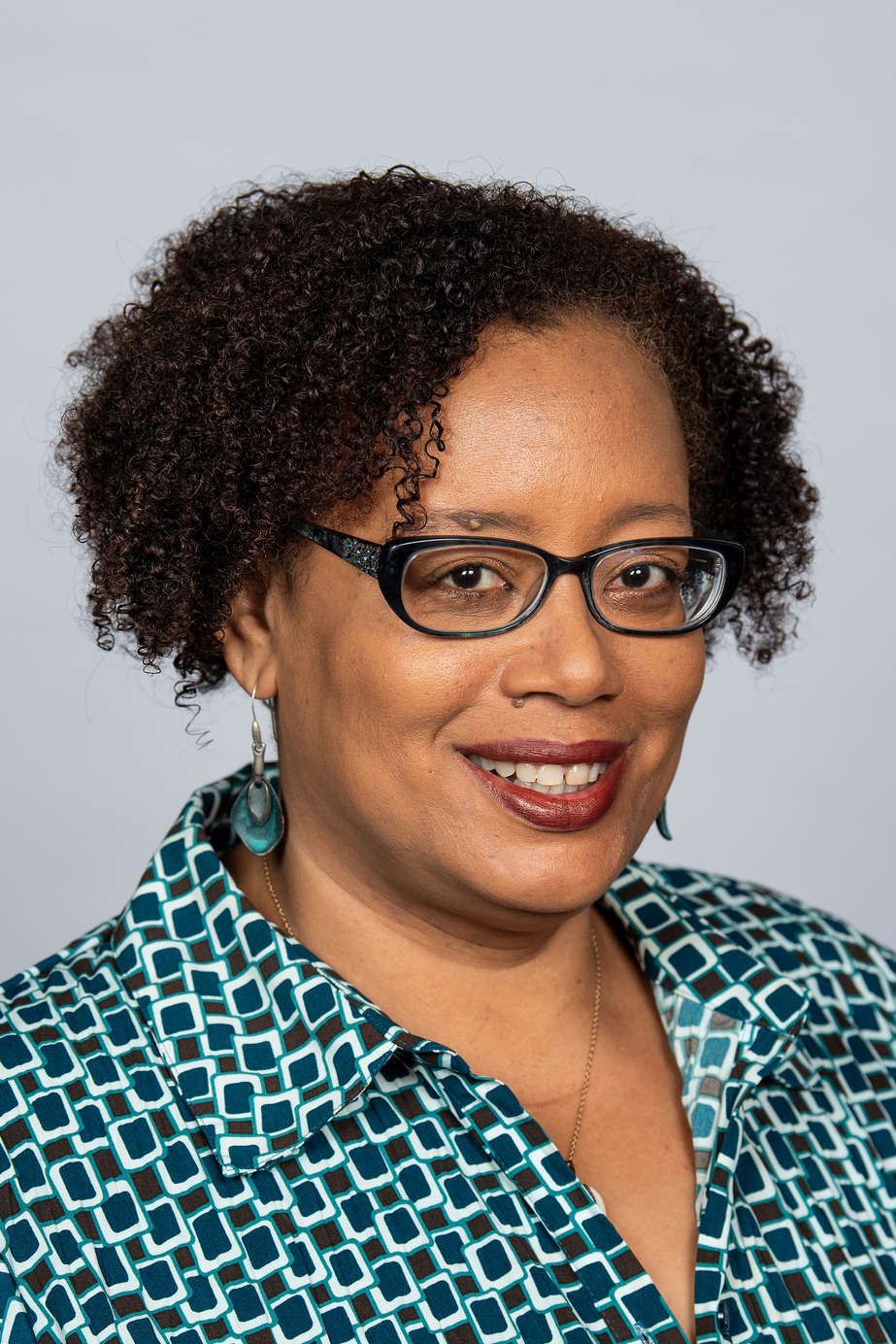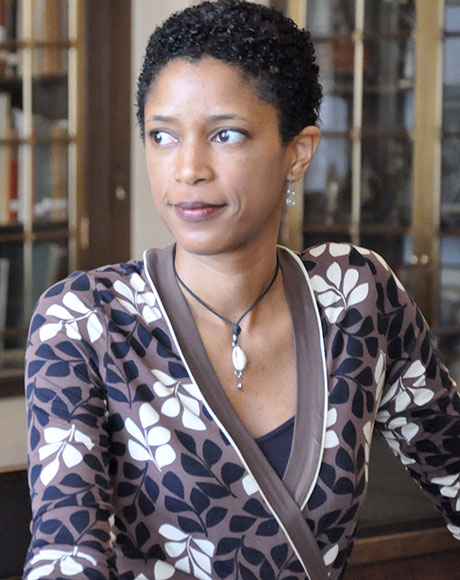The long history of Juneteenth, and why the fight is not over yet

On June 19, 1865, Union soldiers arrived in Galveston, Texas—more than two years after the Emancipation Proclamation was signed—and informed enslaved Black people that they were free.

N. Fadeke Castor is an assistant professor of religion and Africana studies in the College of Social Sciences and Humanities at Northeastern. Photo by Billie Weiss for Northeastern University
This day, known as Juneteenth, has been celebrated annually as a day of freedom ever since.
But Juneteenth is not recognized as a national holiday in the United States. It’s an official state holiday in only three states. And while Juneteenth symbolically marks the end of slavery, it did not mark the end of persecution, racism, racist legislation, white supremacy, and violence against Black people.
“African Americans’ celebrations of Juneteenth are celebrations of an aspirational freedom,” says Fadeke Castor, an assistant professor of religion and Africana studies at Northeastern. “Freedom for African Americans has always been uneven, partial, and deferred.”
The recent killings of Rayshard Brooks, Tony McDade, Breonna Taylor, Ahmaud Arbery, George Floyd, and other Black people in the U.S. have sparked ongoing protests that have once again brought these systemic issues to the front pages of newspapers across the country.
Castor, who has written an award-winning book on spirituality and Black liberation, and Nicole N. Aljoe, who directs the Africana Studies Program and is an associate professor of English and Africana studies, spoke to News@Northeastern about the significance of Juneteenth in the context of history, and what’s going on in the U.S. today.
Can you put these renewed protests in perspective on a date that marks the liberation of Black people in the U.S.?
CASTOR: When has liberation occurred? On the day of the communication and implementation of the Emancipation Proclamation? Or on a day when Americans of African descent, or their diasporic kin, can expect to leave their house in the morning and come back home at night without getting gunned down? Or even sleep through the night without, in their bed—call her name, Breonna Taylor—without getting gunned down? Or on the day when they can expect equal treatment on the job, in accessing health care, or getting a mortgage for a house? When is it the day that Africans in the Americas can celebrate freedom? I don’t know when that day is. That day has not yet come.
Until that day comes, we celebrate our commitment to the idea of freedom, our belief in the idea of freedom, our faith in the idea of freedom on Juneteenth. Juneteenth reflects the commitment that until we are all free, none of us are free.
Does this moment, this year, feel different?
ALJOE: It feels different in that more people are paying attention to it. People seem to be more willing to pay attention to things that folks have been trying to draw attention to for a while.
CASTOR: I see this as a rupture that reflects a shift, an incremental difference in what will be a longer project. And I think this moment has to do with a generational shift, much as we saw a generational shift towards national support for gay marriage. And I think that we are now witnessing the seeds that were planted in previous moments, such as Black Lives Matter [in 2013] and Ferguson [in 2014], and before that going back to the long 1960s with the Civil Rights Movement and Black Power, and going back even further to all the insurrections and uprisings that make up the over 400-year history of struggles for freedom by Africans and their descendants in the Americas.
Tell us more about the history of Juneteenth? How do people celebrate it?
ALJOE: After the initial passage of the Emancipation Proclamation [in 1863], many plantation owners moved enslaved people from locations in the south, like Georgia, westward out to Mississippi and Texas, in an effort to escape. Two years later, the Union Army makes its way out to Texas, and finally lets people there know that they are actually freed.

Nicole N. Aljoe is director of the Africana Studies Program and is an associate professor of English and Africana studies in the College of Social Sciences and Humanities at Northeastern. Photo courtesy Nicole Aljoe
Folks started commemorating that day in the following year. There would be public readings of the Emancipation Proclamation, speeches, sermons, music, and picnics. In particular, African Americans would get dressed up and celebrate. Because part and parcel of the holiday is about celebrating your freedom and freedom to your body. Freedom to be able to treat yourself well, in ways that the larger society does not. So this idea that they would celebrate themselves on this day is particularly resonant.
In the early days, recently enslaved people would be celebrating alongside people who had been freed for generations.
As time goes on, obviously, it becomes much more of an attenuated historical experience. It’s still very much tied to issues of liberty and personal independence, but also, like many holidays in the United States, aspects of it have become more commercial.
It’s been an important holiday, culturally speaking, and many African American artists and writers have engaged with the cultural meaning of the holiday. They have written descriptions of the holiday into novels—it features as a set piece in Jubilee by Margaret Walker, one of the first neo-slave narratives. It’s been an important cultural touchstone, in terms of music, poetry and other cultural productions.
How can people who aren’t Black, or who don’t share this heritage, celebrate Juneteenth?
ALJOE: Black history isn’t only for Black people. It’s something for everyone. It affects everyone.
But more importantly, there is no holiday that we have where we can look back and think about the fact that, as a nation, we were involved in actively enslaving other people. and that thankfully we came to the realization that this was a horrifying situation that had to be ended.
I think it is important that we recognize this. It’s important to pay attention to things like this and to remember this history of enslavement, because, as we see, it’s so easy to forget. And when you forget, that’s when things come back again.
CASTOR: People who don’t identify as being African American or of African descent on June 19th, should do anti-racism work and interrogate their own identity. And then reflect on their own identity’s relationship to the projects of racism and white supremacy, from which emerges the institutionalized structures of inequality that we have all inherited. We all need to come together to undo anti-Black racism.
And we do that by taking a moment to use the tools available in books, movies and resources across the Internet, such as The New York Times 1619 project, to learn something about the African experience in the Americas that you didn’t know. And if you’re an undergraduate, you can sign up for Introduction to African American Studies at Northeastern University this fall (taught by me). Commit to learning about the rich history and cultures of Africans in the Americas, and to learning about the power relations that inform systematic racism.
Juneteenth is not currently a federal holiday. Should it be?
CASTOR: In a sense, it’s easier to talk about what it is not. It is not a national holiday. So it is not a paid day off. It is not a federal employee holiday. It is not a post office holiday. Nor is it a state holiday in any state, except for Texas, and this year, Virginia [and New York].
It was first recognized at a state level by Texas in 1980, where it is an official holiday. All states except for Hawaii, and North and South Dakota recognize the day to some degree, but not as an official holiday.
But part of this whole corporate response to Black Lives Matter is several companies have decided that they’re going to give employees that day off. This says something about the nature of the type of capitalism and the type of nation-state—and the intersection of the two that we live in—where Target offers Juneteenth as a paid holiday before the nation-state does. Which underscores that African descendants in the Americas have not, and are not, waiting on recognition from the nation, and especially not from a company, before celebrating and claiming their freedom.
ALJOE: I think it is important that the United States celebrate the ending of this historical slavery. There currently is no holiday, no commemoration of that. And it is, as we say, our original sin.
And I think it is incredibly important that this day, in particular, be chosen. Because it is an appropriate day, and it has this long history in ways that January 1, which would be the technical day when the Emancipation Proclamation went into effect, just doesn’t.
We definitely need a holiday and Juneteenth, June 19, is a perfect day to commemorate the investments in liberty that the nation claims it has.
So on a day dedicated to recognizing the emancipation of Black people, what is the most important lesson to remember?
CASTOR: We have not been emancipated. Can I be clearer? African descendants in the Americas have not yet been emancipated. And note here that I say Americas, which includes North, South, Latin America, and the Caribbean. Africans are in the Americas because of colonialism, imperialism, and the Atlantic Slave Trade. The ongoing projects of emancipation and abolition are diasporic and transnational. When we—as people of African descent—can be killed for the color of our skin while walking down the street in Boston or Baton Rouge or Rio de Janeiro, then we have not been emancipated. We are not fully free. Our freedom is an ongoing project of abolition.
There’s a saying that we are descendants of those who were never meant to survive (echoing Audre Lorde’s A Litany for Survival). Africans in the diaspora continue to challenge the system because this system was never made for us. It’s just the factual truth. This system was not created for Africans and their descendants, even as we have made great contributions that have helped to shape it over the past 400 years. This tension is part of what makes the quest for freedom so challenging.
Which is why there’s a difference between diversity and inclusion work and anti-racism work. Because diversity and inclusion work tries to expand the mandate of citizenship to include all people and make sure all people are seen and equally valued. Anti-racism work says the system was never built for all people, and in order to be truly inclusive it requires a re-examination and a re-imagining of our historical legacy and our current system. And that’s why, all these years post-June 19, 1865 we are still struggling for full freedom.
For media inquiries, please contact media@northeastern.edu.





